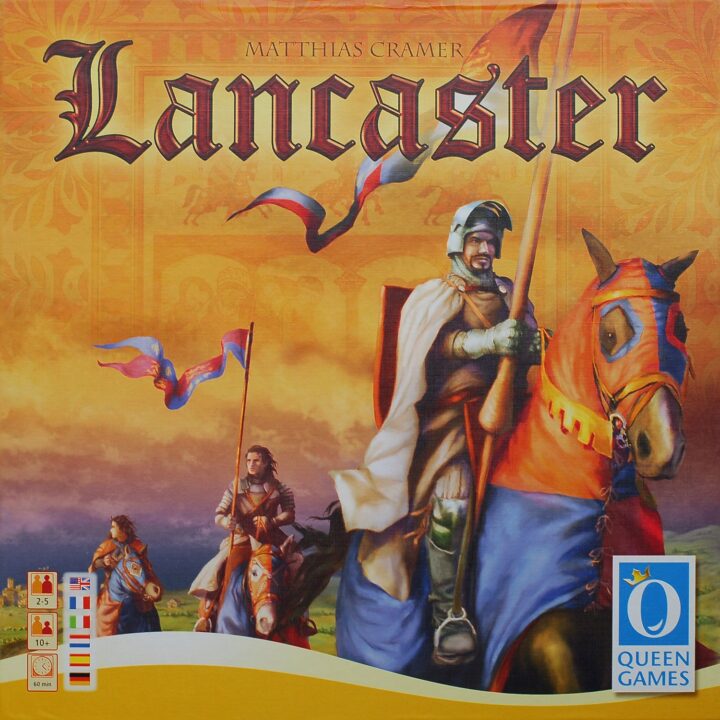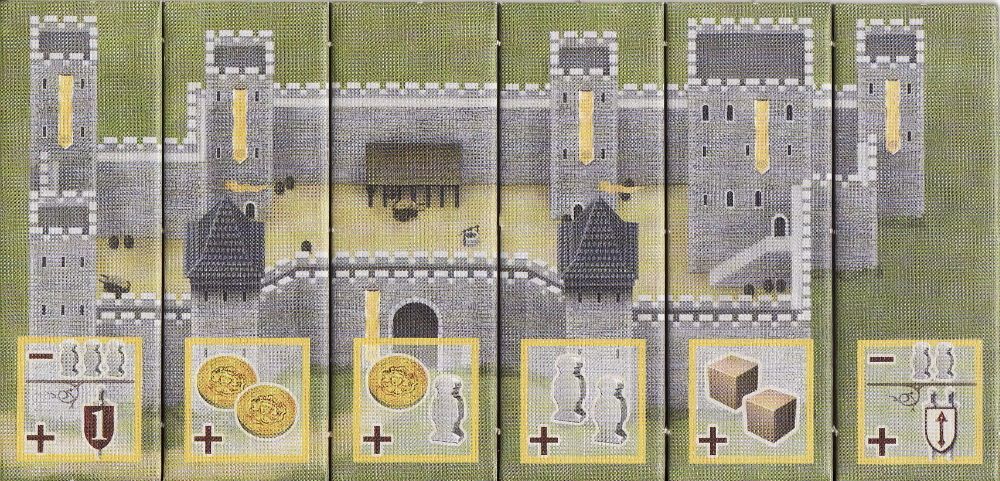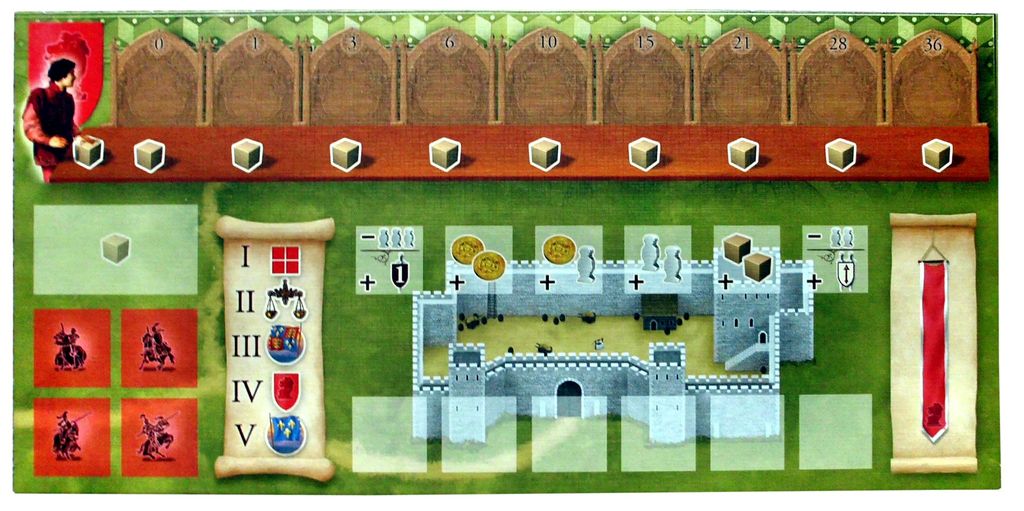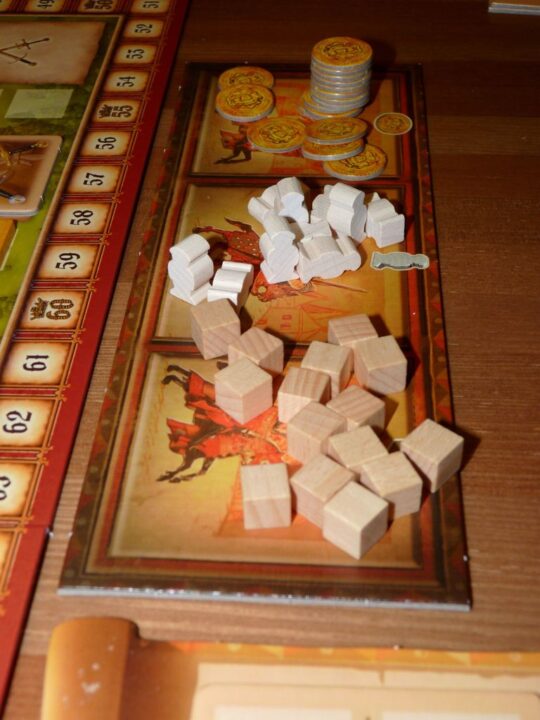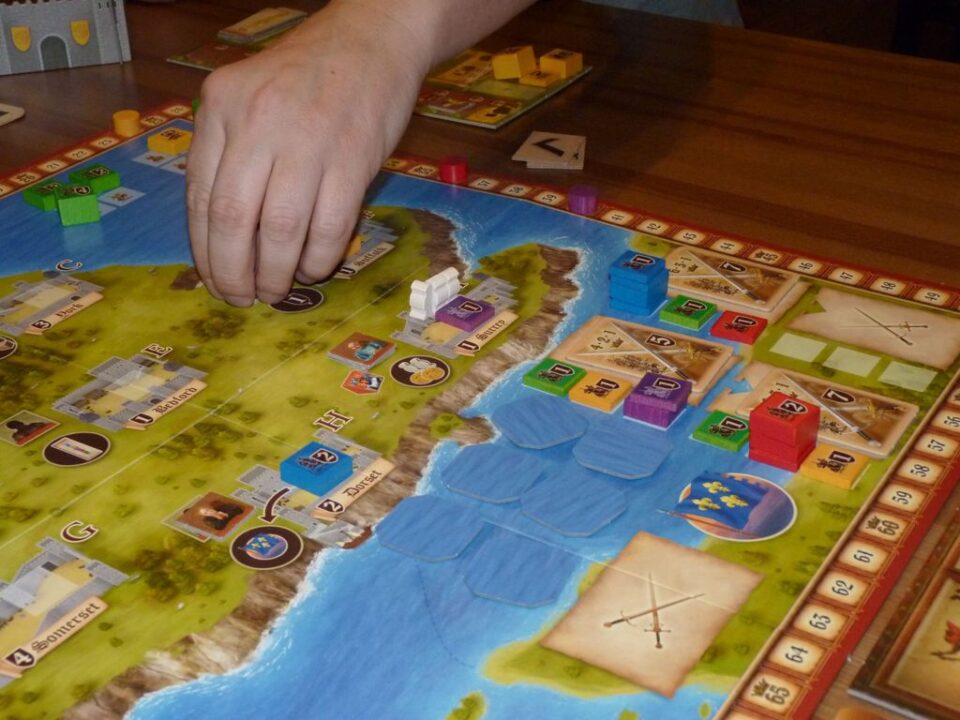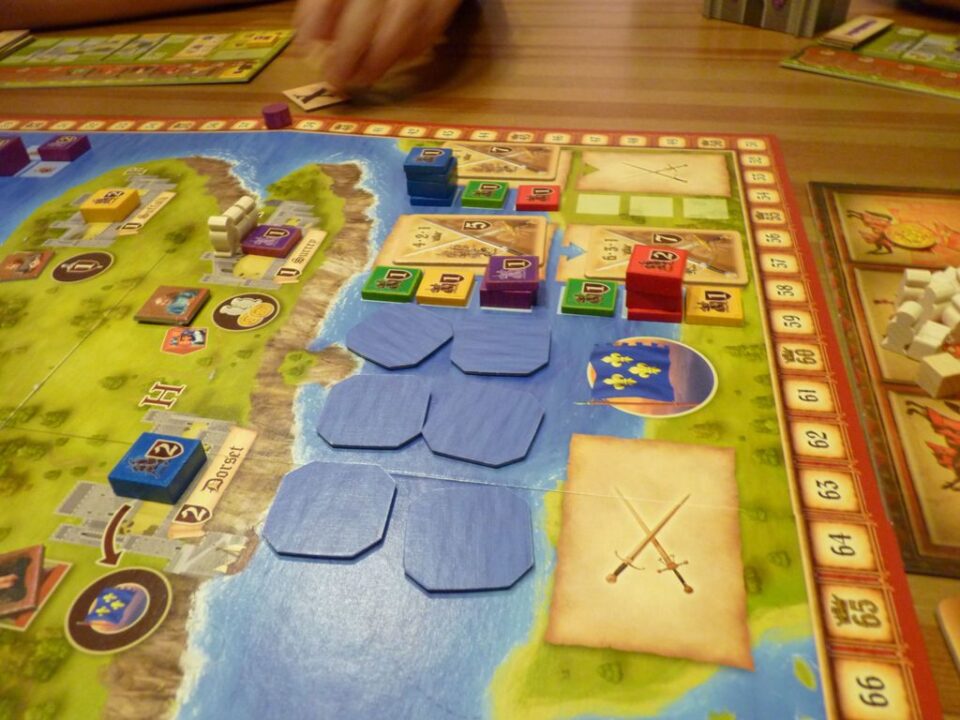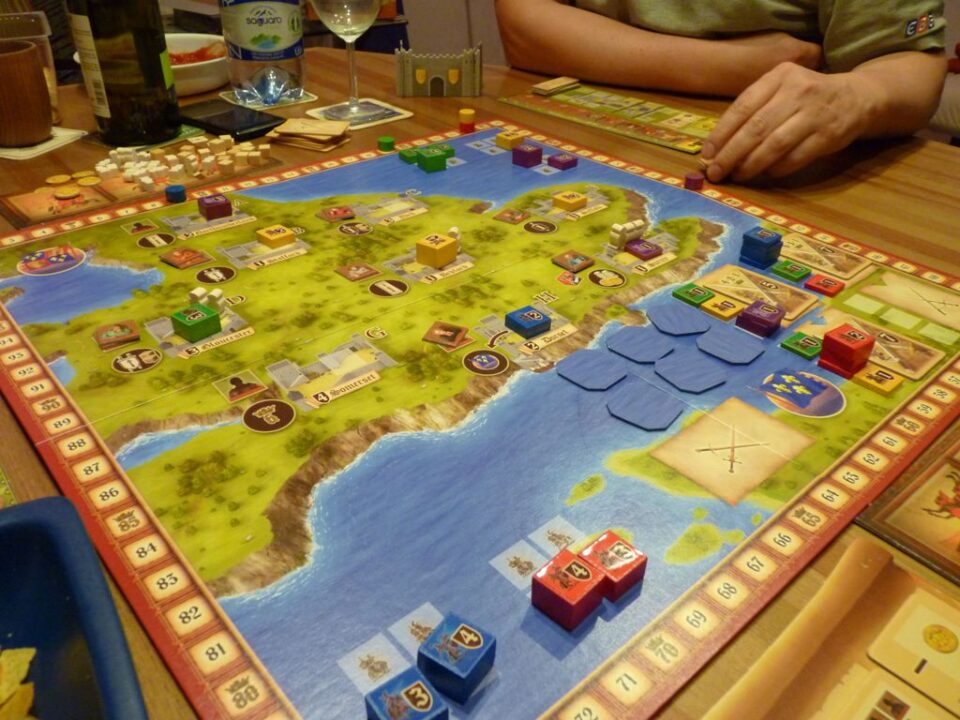Overview
Welcome friends, to my latest board game discovery, where we’ll be taking a closer look at ‘Lancaster‘. Strap in as I guide you through its medieval world, where strategy meets lively player negotiation, impressive components, and a well-balanced gameplay that minimizes luck. Yes, we’re talking about a game that not only tests your diplomatic skills but also your ability to plan ahead, all wrapped up in a quality package that will lure you back to the table night after night. So, let’s get to it and see why Lancaster might just earn a permanent spot in your game night lineup.
How It Plays
Setting up
First things first, you gotta spread all those pieces out. Lancaster’s got a bunch of knights, squires, and castles that need sorting. Get the board in the middle, knights and nobles ready, and give everyone their starting goodies. Don’t forget to line up those law cards; they’re like the rulebook for your medieval hustle.
Gameplay
Now, the fun begins. Each round, you’ll send your knights out to claim counties, battle for rewards, or hit up the king’s court for some political maneuvering. It’s like chess but with more backstabbing. You place, you vote on laws, and you try not to tick off your friends too much. It’s a delicate balance between being powerful and being sneaky.
Winning the game
After a few rounds of this medieval scheming, the game ends and points get tallied. It’s all about who’s got the most influence in the land. Did you help the king and gain favor? Did your knights become legends? If you’ve got the most points from counties, castles, and those sneaky law votes, congrats, you’re the top monarch. Time to brag!
Want to know more? Read our extensive strategy guide for Lancaster.
Unraveling the Strategic Depths of Lancaster
Lancaster is not your run-of-the-mill board game. It throws you back to the medieval times where strategic decisions shape your kingdom’s fate. Every move in Lancaster is a test of your decision-making skills. Do you bolster your own castle, venture into battles, or influence the laws of the land? It’s like being in a chess game where every pawn matters. And here’s the kicker: your choices have long-term impacts. Choose wisely, and you might just outmaneuver your friends to victory. But make one too many hasty decisions, and you’ll find yourself at the mercy of your more strategic opponents. The game perfectly balances strategic depth with accessible decision-making, ensuring that each session is as engaging as it is thought-provoking.
Now, hold onto your knights, as we charge into the realm of player interaction and negotiation.
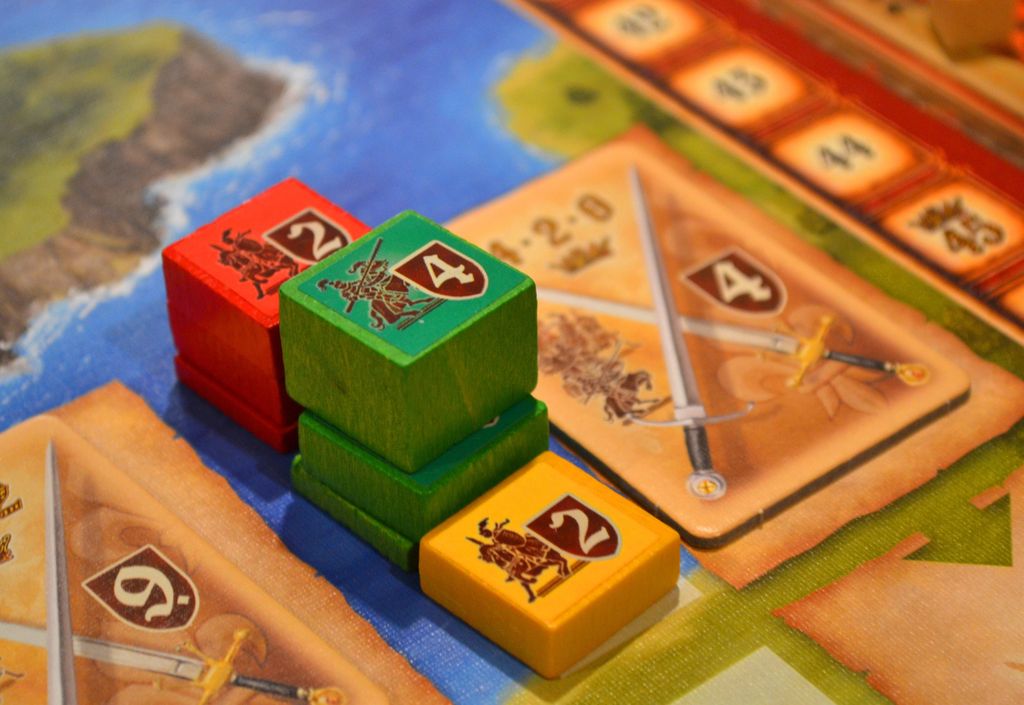
Mastering the Art of Diplomacy in Lancaster
Lancaster sets the stage for some intense player negotiations and interactions. From the moment you start plotting your knights’ placements, you’re not just playing against the game, but also against the minds and strategies of your friends. Every move you make can incite a flurry of bargaining, promises, and sometimes, betrayal. It’s all in good fun, of course. The game’s designed to make you think not just about your own advancement, but how to cleverly disrupt your opponents’ plans without making too many enemies. Well, unless you’re into that sort of thing.
The real juice of Lancaster lies in its laws though. Voting on these laws requires a delicate balance of persuasion and power. Sometimes, you’ll find yourself making deals that feel more like realpolitik than a casual game night. It’s utterly absorbing and ensures that no two games will ever be the same.
Speaking of game nights, let’s not forget how a beautifully crafted game can enhance the experience. Stay tuned for the wonders of game components and artwork quality.
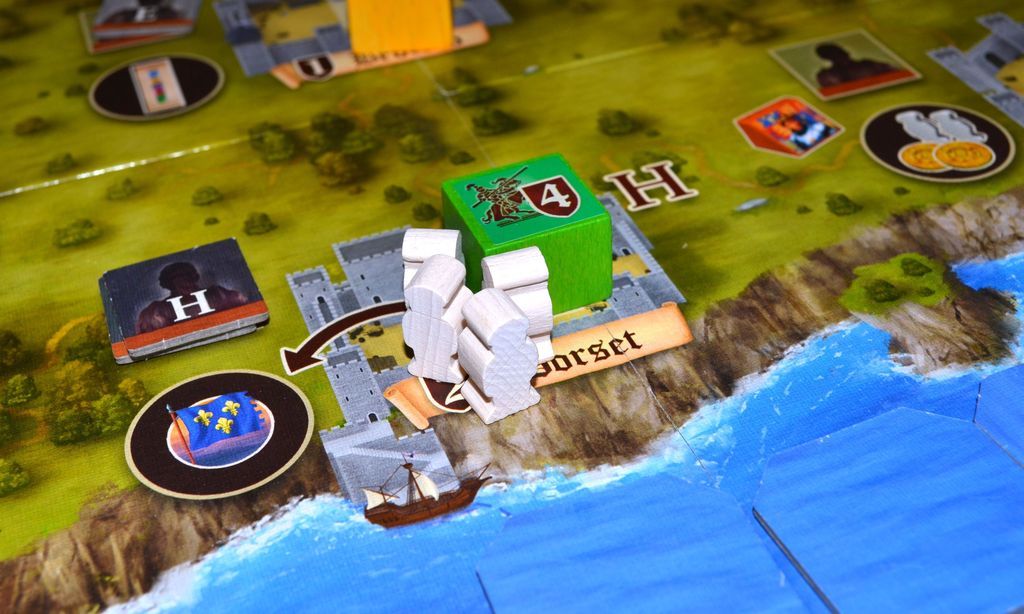
Lancaster’s Visual and Tactile Appeal
Oh boy, where do I start with Lancaster‘s game components and artwork? They truly knock it out of the park. Opening the box is like stepping back in time to the Middle Ages, but without all the pesky plagues and whatnot. The board and pieces are not just functional; they’re a feast for the eyes. You’ve got these weighty knight figures that feel like they could joust right off the table. The castles, meanwhile, are so detailed, you half expect a tiny medieval feast to be happening inside. And the artwork? It’s like someone traveled back in time, grabbed a medieval artist, and brought them back to design this game. It all adds up to a game that’s not just fun to play but also to look at and touch.
Next up, let’s see how this all plays into the game’s balance and the dicey role of luck.
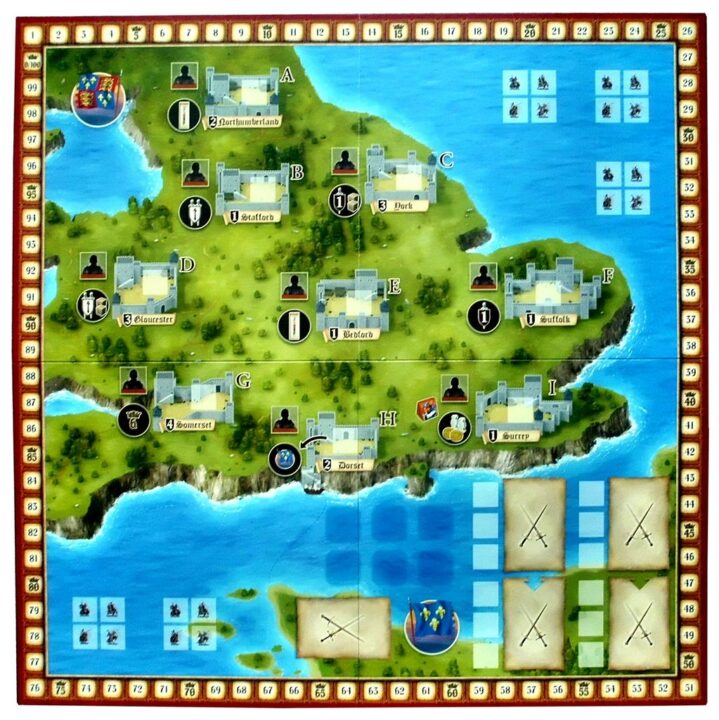
Striking a Balance with Skill in Lancaster
Lancaster is a game that hooks you with its strategic layers but wins your heart with how it handles balance and the role of luck. Unlike games where a dice roll can dash your dreams, Lancaster leans heavily on strategic decisions over chance. That’s not to say luck doesn’t have its moments, but here, it’s more about nudging possibilities rather than dictating outcomes.
What really sets Lancaster apart is its balanced gameplay. Each player starts on equal footing, and the game’s mechanics are designed to prevent runaway leaders. This keeps all players engaged and competitive until the very end. The knights’ bidding system is a work of art, promoting balance by giving players with fewer resources a fighting chance to make impactful moves.
In conclusion, Lancaster is a standout for me. It’s the perfect blend of strategy and balance, with just a dash of luck to keep things interesting. I wholeheartedly recommend it to anyone looking for a board game that rewards smart decisions and strategic planning.
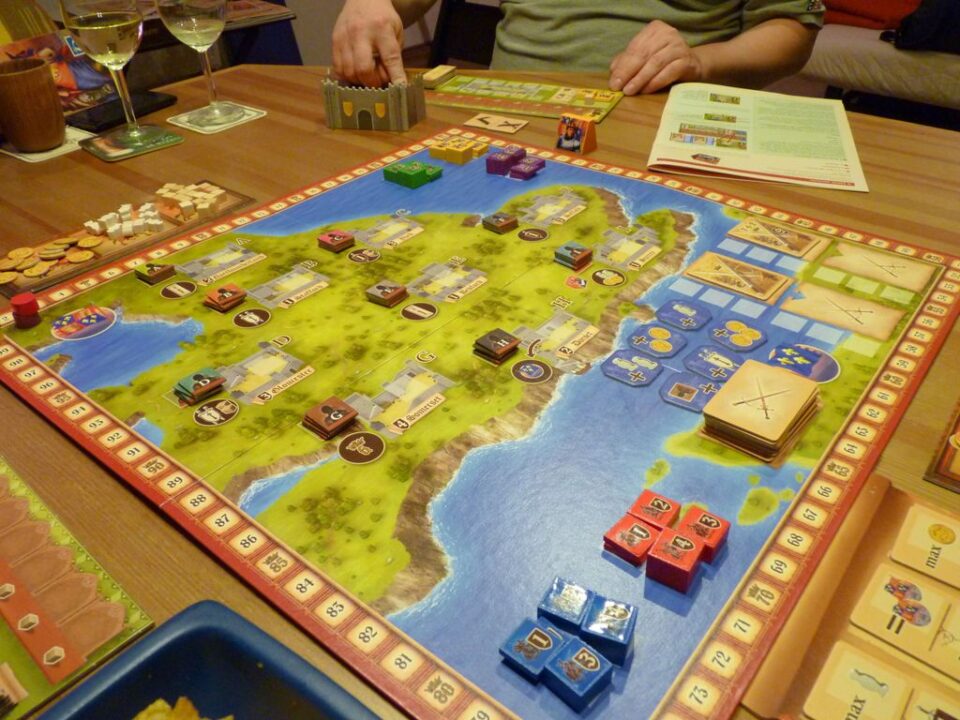
Conclusion
Wrapping up, Lancaster is a brilliant mix of strategy, diplomacy, and minimal luck, delivering an engaging experience. The game shines with deep strategic elements, requiring players to think ahead and react to the moves of their opponents. Player interaction is at the heart of Lancaster, emphasizing negotiation and cooperation, but also competition, which keeps every game dynamic and interesting. The high-quality components and artwork immerse you into its medieval theme, enhancing the overall experience. Plus, its balanced mechanics ensure that while strategy plays a crucial role, luck doesn’t overshadow skill, making it a fair and competitive game. After many game nights and debates over the best moves, Lancaster has proven to be a hit among my friends and me. It’s a game that challenges your strategic thinking while ensuring that everyone has a great time. For those who appreciate a game where strategy outweighs luck, Lancaster is a must-try. It’s earned a solid spot on my game shelf, and I reckon it should on yours too!

